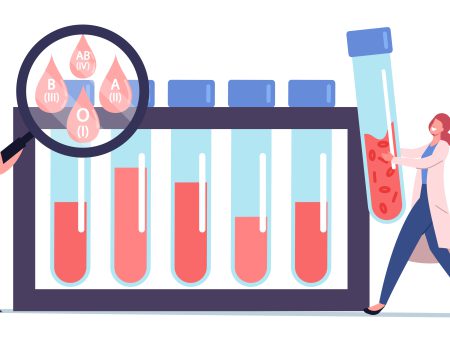
This article looks at several aspects of DNA testing in France. First, a look at the legal framework governing these procedures. A distinction will then be made between several types of DNA tests: ancestry, paternity, and maternity. Genetic identification will not be omitted. In addition, the need for a fraternal test and its procedure will be examined before turning our attention to animal testing. The crucial question remains: is it possible to carry out a DNA test in France?
Legal frameworks
The French penal code and DNA testing
Under French law, the use of DNA testing is strictly regulated. The French Penal Code stipulates that the implementation of these analyses must comply with specific rules. Article 16-11 of the French Civil Code specifies that:
- The application of DNA testing is restricted to certain defined legal contexts.
- There must be a valid reason for requesting a test.
- A magistrate must give permission for the test to be carried out.
- The individuals involved must express their formal agreement.
- Failure to comply with these principles may result in imprisonment and/or a significant fine.
DNA testing and case law
In the judicial sector, several decisions have been adopted concerning the use of DNA testing. These verdicts have clarified the limits of the law applicable to genetic testing. For example, the European Court of Human Rights ruled that while French limitations on paternity testing were essential to preserve “family peace”, they also had to take into account the right to respect for private life (Jäggi v. Switzerland). Although closely regulated by French legislation, the legal uses of these scientific instruments continue to evolve under the constant influence of technological developments.
The distinction between DNA tests
In France, it’s crucial to understand the distinct categories of DNA testing and their legal consequences.
On the one hand, there are medical genetic analyses recommended by a doctor for diagnosis or follow-up. The law strictly regulates these examinations and imposes specific conditions to ensure that the patient’s rights are protected.
On the other hand, we have paternal or maternal parentage tests. They can only be carried out after judicial authorization, and only if necessary to establish legal parentage.
There are also fun DNA tests which, among other things, allow you to determine your ethnic roots. Their use is nevertheless controversial due to the ethical issues they raise, and they have no official accreditation in France.
We must therefore remain vigilant as to the use made of the results of these several types of DNA examination on French soil.
Performing an ethnic origins test
Motivations for an origin test
There are many reasons to carry out a DNA origin test. It can prove beneficial for tracing lost relatives, establishing biological connections or exploring ethnic roots. These analyses provide precise details of ancestry and genetic inheritance.
The ethnic origin test process
The implementation of DNA ancestry test requires a specific procedure in France. Sampling is usually performed by buccal swab using a kit supplied by the selected laboratory. Once the samples have been collected, they are sent back to the laboratory for analysis, and a detailed report is sent to the customer with the results obtained.
Paternity determined by DNA
Determining paternity by DNA is a commonly used procedure in parentage proceedings. It requires a biological sample to confirm or deny whether one individual is the biological parent of another.
In France, this test can only be carried out at the request of a family court judge in the event of a dispute over parentage. The law strictly regulates this process to protect individual rights and prevent abuse. The judicial authorization required is intended to guarantee that the consent of the persons concerned has been obtained and that their privacy will be respected.
Despite these legal restrictions, some foreign laboratories offer this service to the French online. However, illegal use of a DNA test can result in severe criminal penalties. It is essential to comply with current regulations to avoid any undesirable legal consequences.
Maternity and genetic identification
Performing the maternity test
In France, the maternity test is carried out by evaluating the genetic profiles of the presumed mother and the child. This process requires the collection of biological samples, usually in the form of a buccal swab or blood sample. These samples are then sent to a certified laboratory for analysis.
- The first step is to collect a biological sample.
- This is followed by extraction and purification of the genetic material.
- The next step involves specific amplification of the target regions of the genome by PCR (Polymerase Chain Reaction).
- The results are interpreted by comparing the profiles obtained with those predicted by the Mendelian laws of heredity.
Its use in France
The use of maternal DNA testing in France is strictly regulated by law. In accordance with the French Civil Code (Article 16-11), these tests can only be carried out with the free and informed consent of the persons concerned. In addition, they must receive judicial authorization in certain conflict situations, such as when there is a disagreement over parentage, or when it is essential to solve a serious criminal case.
The need for and procedure of the fraternal test
The need for a fraternity test can be felt in a variety of contexts, particularly to confirm a fraternity relationship when the parents are no longer there to attest. Fraternal DNA analysis is a scientific process that compares the genetic profile of two people to determine whether they have one or two siblings in common.
There are two main types: Y-chromosome DNA analysis and mitochondrial studies. The former is used to validate a direct paternal link between brothers, while the latter determines whether subjects have the same biological mother.
To carry out this type of test, a DNA sample must be collected from a mouth swab or blood sample. The results can provide convincing evidence of family ties and are often used in legal cases involving inheritance or family law.
It is important to stress, however, that the use of DNA testing for individual purposes without explicit consent is prohibited in France and may lead to severe penalties.
All you need to know about DNA testing for animals
Which animals are tested?
The scope of DNA testing is not limited to human beings. These scientific analyses also concern a variety of animals. Dogs and cats are the most common, making it possible to identify their breed or confirm their parentage. Other species such as parrots, canaries, cattle, and sheep can also be DNA tested. It’s important to note that each animal has its own unique set of genetic markers, requiring a tailored test. Quick DNA and Embark laboratories are experts in this field.
How to proceed
Performing a DNA test on an animal requires a simple but careful procedure. The sample required for the test must be obtained: in some cases, this may be blood, but more often it’s a buccal swab taken with a special brush. Once the sample has been carefully obtained to avoid cross-contamination between different animals, it is sent to a specialized laboratory, which will analyze the DNA present and provide the corresponding results to the applicant.
It’s crucial to remember that, just as in human beings, these tests must be carried out in compliance with certain ethical and legal rules to ensure the well-being of the animals involved in this type of scientific intervention.












